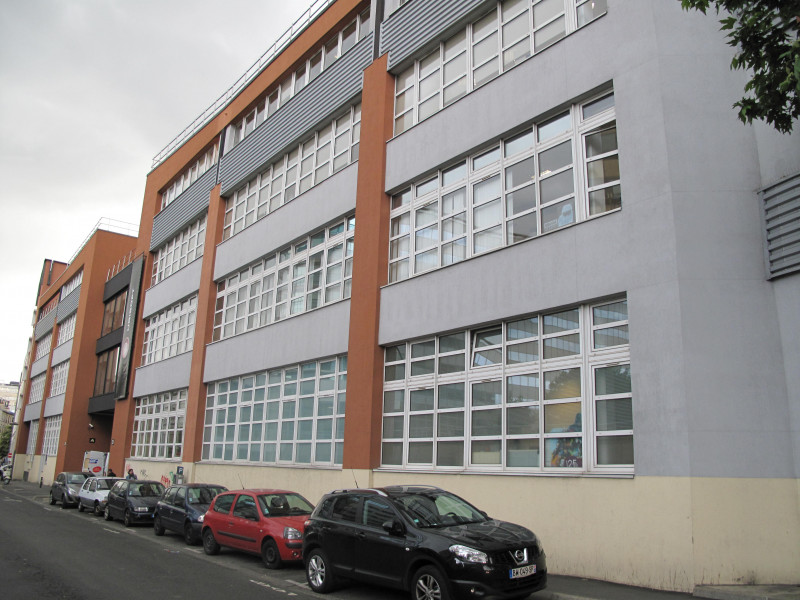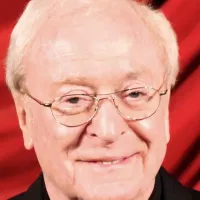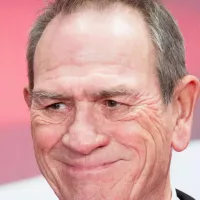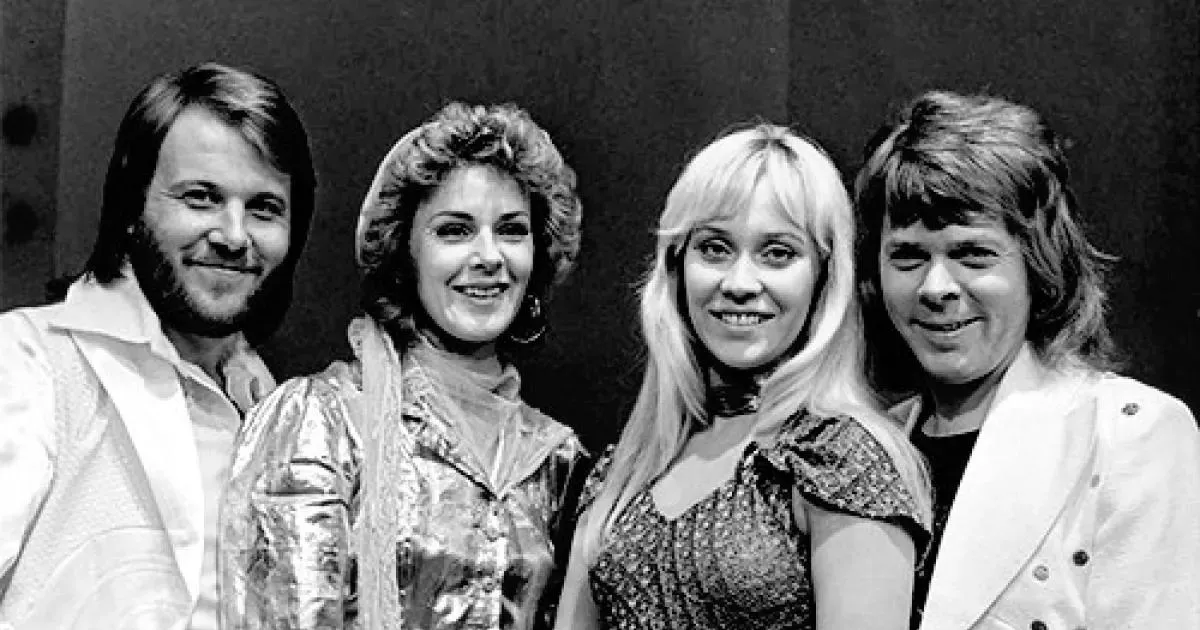ABBA was a highly successful Swedish pop group formed in 1972, consisting of Agnetha Fältskog, Björn Ulvaeus, Benny Andersson, and Anni-Frid Lyngstad. Renowned for their catchy melodies and harmonies, they achieved global fame and became one of the best-selling music acts of all time.
1971: Marriage of Agnetha Fältskog and Björn Ulvaeus
In 1971, Agnetha Fältskog and Björn Ulvaeus were married.
June 1972: Release of "People Need Love"
In June 1972, Björn Ulvaeus and Benny Andersson released "People Need Love" as a single, featuring guest vocals by Agnetha Fältskog and Anni-Frid Lyngstad. Credited to Björn & Benny, Agnetha & Anni-Frid, the song reached number 17 in the Swedish combined single and album charts.
1972: Start of ABBA's Active Career
In 1972, ABBA began their active career which lasted until 1982. During this time they achieved significant success on the Billboard Hot 100.
February 1973: "Ring Ring" at Melodifestivalen
On 10 February 1973, ABBA participated in Melodifestivalen with the song "Ring Ring", translated into English by Neil Sedaka and Phil Cody. The song came third in the competition, preventing it from reaching the Eurovision Song Contest. The group released their debut album, also called Ring Ring.
October 1973: First Written Instance of "ABBA"
On October 16, 1973, the earliest known example of "ABBA" written on paper appeared on a recording session sheet from the Metronome Studio in Stockholm. Initially written as "Björn, Benny, Agnetha & Frida", it was crossed out and replaced with "ABBA".
1973: Planning for the 1974 Eurovision Song Contest Begins
After ABBA's unsuccessful entry in the 1973 Melodifestivalen, Stig Anderson began planning for the 1974 contest, aiming to use the Eurovision Song Contest to promote the band and showcase their songwriting abilities.
1973: Inger Brundin replaces Agnetha Fältskog temporarily
In 1973, Agnetha Fältskog gave birth to her daughter Linda. During this period, Inger Brundin replaced her for a short trip to West Germany.
1973: The origin of the band name ABBA
In 1973, Stig Anderson started referring to the group as ABBA publicly and privately, which is a palindrome. ABBA is also the name of a fish-canning company in Sweden. A competition was held to find a suitable name for the group, and it was announced in the summer that the group would be known as "ABBA".
February 1974: ABBA wins Melodifestivalen 1974
On 9 February 1974, ABBA won Melodifestivalen with their third attempt. They earned the nation's hearts on Swedish television.
April 1974: ABBA Wins Eurovision Song Contest with "Waterloo"
On 6 April 1974, ABBA won the Eurovision Song Contest with "Waterloo", sung in English. The win led to a tour of Europe and performances on major television shows, propelling the "Waterloo" single to chart success in many European countries. Following the win, ABBA celebrated in the Napoleon suite of The Grand Brighton Hotel.
November 1974: Countdown Premieres and Boosts ABBA's Popularity in Australia
In November 1974, the premiere of the TV pop show Countdown in Australia featured music videos for "I Do, I Do, I Do, I Do, I Do" and "Mamma Mia", leading to a rapid increase in ABBA's popularity. The show became a key promoter of the band through their music videos, sparking significant interest in ABBA.
1974: ABBA Chooses "Waterloo" for Melodifestivalen 1974
In late 1973, Swedish television invited ABBA to contribute a song for the Melodifestivalen 1974, and the upbeat song "Waterloo" was selected. The group drew inspiration from the growing glam rock scene in the UK.
January 1975: Successful Scandinavian Leg of ABBA's Tour
In January 1975, the second leg of ABBA's European tour took them through Scandinavia, where they played to full houses, receiving the positive reception they had hoped for.
1975: International Success of "Mamma Mia" and Chart Performances
In 1975, "Mamma Mia" reached number one in the United Kingdom, Germany, and Australia, and top-two in several other European countries. In the United States, "I Do, I Do, I Do, I Do, I Do" and "SOS" peaked at number 15 on the Billboard Hot 100, with "SOS" receiving a BMI Award. "Mamma Mia" reached number 32 in the US.
1975: "Fernando" Awarded as "Best Studio Recording of 1975"
In 1976, ABBA received its first international prize, with "Fernando" being chosen as the "Best Studio Recording of 1975".
1975: Release and Chart Performance of "I Do, I Do, I Do, I Do, I Do"
In the middle of 1975, ABBA released "I Do, I Do, I Do, I Do, I Do", which received little airplay on Radio 1 but reached number 38 on the UK chart. It achieved top-five status in several European countries and number one in South Africa. Later that year, the release of their self-titled third studio album, ABBA, and the single "SOS" marked their return to the UK charts, with "SOS" becoming their second number-one single in Germany.
March 1976: Release of Greatest Hits and Success of "Fernando"
In March 1976, ABBA released the compilation album Greatest Hits, which became their first UK number-one album. It also reached the Top 50 in the US, selling over a million copies. The album included the new single "Fernando", which reached number-one in at least thirteen countries, selling over 10 million copies worldwide.
May 1976: Release of Golden Double Album with ABBA's official logo
In May 1976, ABBA's official logo, featuring a distinctive backward "B", designed by Rune Söderqvist, first appeared on the French compilation album, Golden Double Album, released by Disques Vogue.
1976: ABBA's Limited Success in the United States Album Market
By early 1976, ABBA had four Top 30 singles on the US charts, but their eponymous album only peaked at number 165 on the Cashbox chart and number 174 on the Billboard 200 chart, despite positive reviews from the American press.
1976: "Fernando" Receives International Prize and Chart Success
In 1976, "Fernando" was chosen as the "Best Studio Recording of 1975" and achieved Top 10 status on the Cashbox Top 100 singles chart and number 13 on the Billboard Hot 100 in the United States. A compilation named The Very Best of ABBA was released in Germany, becoming a number-one album there.
1976: Success of "Money, Money, Money", "Knowing Me, Knowing You" and "Dancing Queen"
In 1976, ABBA released several hit songs from Arrival, including "Money, Money, Money", which reached number one in Germany, France, Australia, and other European countries. "Knowing Me, Knowing You" became ABBA's sixth consecutive German number-one and topped the charts in the UK. "Dancing Queen" topped charts in the UK, Germany, Sweden, the US, Canada, the Soviet Union, and Japan.
1976: Release of "Arrival"
In 1976, ABBA's instrumental track "Arrival" was released.
1976: Inspiration for ABBA's Mirrored "B" Logo
In 1976, during a velvet jumpsuit photo shoot for the teenage magazine Bravo, German photographer Wolfgang "Bubi" Heilemann noticed that Benny Andersson reversed his letter "B" while holding giant initial letters of the band's names, which inspired the mirrored "B" in ABBA's official logo.
January 1977: First major tour
In January 1977, ABBA commenced their inaugural major tour, beginning on January 28 in Oslo, Norway, and showcasing scenes from their mini-operetta, "The Girl with the Golden Hair". The concerts drew substantial media coverage across Europe and Australia.
March 1977: Australian Tour Begins
In March 1977, ABBA's Australian tour commenced. The opening concert in Sydney on March 3, was attended by 20,000 people at the Sydney Showground. Despite torrential rain and a stage mishap where Lyngstad slipped, the members remember it as a career highlight.
April 1977: "Dancing Queen" Reaches Number One
In April 1977, ABBA's single "Dancing Queen" reached number one on the Billboard Hot 100 chart.
December 1977: Release of ABBA: The Album
In December 1977, ABBA released their fifth album, "ABBA: The Album", coinciding with the debut of "ABBA: The Movie". Despite mixed reviews in the UK, the album produced hits like "The Name of the Game" and "Take a Chance on Me".
1977: ABBA 1977 tour performances
In 1977, ABBA had live performances as part of their tour.
1977: Arrival Nominated for BRIT Award
In 1977, ABBA's album Arrival was nominated for the inaugural BRIT Award in the category "Best International Album of the Year."
May 1978: Promotional Campaign in the United States
In May 1978, ABBA traveled to the United States for a promotional campaign. The group performed alongside Andy Gibb on Olivia Newton-John's TV show.
1978: Marriage of Benny Andersson and Anni-Frid Lyngstad
In 1978, Benny Andersson and Anni-Frid Lyngstad were married.
January 1979: Ulvaeus and Fältskog Announce Divorce
In mid-January 1979, Ulvaeus and Fältskog publicly announced their divorce, attracting significant media coverage and sparking speculation about ABBA's future. Andersson and Ulvaeus travelled to Compass Point Studios in Nassau, Bahamas to work on their next album.
January 1979: Performance at Music for UNICEF Concert
On January 9, 1979, ABBA performed "Chiquitita" at the Music for UNICEF Concert at the United Nations General Assembly, celebrating UNICEF's Year of the Child. ABBA donated the copyright of "Chiquitita" to UNICEF.
September 1979: ABBA: The Tour Begins in Canada
On September 13, 1979, ABBA's tour began at Northlands Coliseum in Edmonton, Canada, with a full house of 14,000 attendees. The Edmonton Journal praised Agnetha and Anni-Frid's vocals.
October 1979: Continuation of ABBA: The Tour
In October 1979, ABBA continued their tour, playing 23 sold-out gigs across Western Europe, including six sold-out nights at Wembley Arena in London. The group played a total of 17 sold-out dates, 13 in the United States and four in Canada during the previous weeks.
1979: ABBA 1979 tour performances
In 1979, ABBA had live performances as part of their tour.
1979: Release of Greatest Hits Vol. 2
In 1979, ABBA released "Greatest Hits Vol. 2", featuring the new track "Gimme! Gimme! Gimme! (A Man After Midnight)". Also in 1979, ABBA was paid in oil commodities by the Soviet Union, due to an embargo on the rouble.
1979: Divorce of Agnetha Fältskog and Björn Ulvaeus
In 1979, Agnetha Fältskog and Björn Ulvaeus divorced.
July 1980: Release of "The Winner Takes It All"
In July 1980, ABBA released the single "The Winner Takes It All", which became the group's eighth UK chart topper. The song reached number-eight on the Billboard Hot 100 chart in the United States and became ABBA's second Billboard Adult Contemporary number-one.
November 1980: Release of Super Trouper album
In November 1980, ABBA's seventh album Super Trouper was released, showcasing a change in style with synthesisers and personal lyrics. It set a record for pre-orders in the UK. The second single, "Super Trouper", also reached number one in the UK.
January 1981: Ulvaeus Marries and ABBA records "Hovas Vittne"
In January 1981, Ulvaeus married Lena Källersjö. For manager Stig Anderson's 50th birthday, ABBA recorded "Hovas Vittne" as a tribute, releasing only 200 red vinyl copies to party guests.
February 1981: Andersson and Lyngstad Announce Divorce
In mid-February 1981, Andersson and Lyngstad announced they were filing for divorce, after their marriage had been an uphill struggle for years.
November 1981: Benny Andersson's Marriage
In November 1981, Benny Andersson married Mona Nörklit.
December 1981: Release of "One of Us"
In December 1981, "One of Us" from The Visitors became ABBA's last number-one single in Germany, and their swansong on the South African chart. It was also ABBA's final Top 3 hit in the UK.
December 1981: Release of "When All Is Said and Done" and "The Visitors"
In December 1981, "When All Is Said and Done" debuted on the US charts and became ABBA's final Top 40 hit in the US. In the same month, The Visitors hit the Top Ten on the Billboard Hot Dance Club Play chart.
1981: Release of "Lay All Your Love on Me"
In 1981, "Lay All Your Love on Me" was released as a Twelve-inch single in select territories. It topped the Billboard Hot Dance Club Play chart and reached number-seven on the UK singles chart.
1981: Divorce of Benny Andersson and Anni-Frid Lyngstad
In 1981, Benny Andersson and Anni-Frid Lyngstad divorced.
June 1982: ABBA recording struggles
In June 1982, ABBA experienced recording struggles, only managing to record three songs: "You Owe Me One", "I Am the City", and "Just Like That". Andersson and Ulvaeus were not satisfied, shelving the tapes for a summer break.
November 1982: ABBA promote The Singles: The First Ten Years
In November 1982, ABBA traveled to London to promote 'The Singles: The First Ten Years', appearing on Saturday Superstore and The Late, Late Breakfast Show, and to West Germany to perform on Show Express.
December 1982: ABBA's final public performance before reunion
In December 1982, ABBA's final public performance together before their 2016 reunion was on the British TV programme The Late, Late Breakfast Show, live from Stockholm.
December 1982: ABBA's final performance
On December 11, 1982, ABBA made their last performance ever, transmitted to the UK on Noel Edmonds' The Late, Late Breakfast Show, through a live link from a TV studio in Stockholm.
1982: End of ABBA's Active Career
In 1982, ABBA ended their active career which began in 1972. During this time they achieved significant success on the Billboard Hot 100.
January 1983: Fältskog begins recording solo album
In January 1983, Fältskog started recording sessions for a solo album.
December 1983: Premiere of "Abbacadabra"
On December 8, 1983, "Abbacadabra" premiered at the Lyric Hammersmith Theatre in London.
1983: Belated release of "Thank You for the Music" in the UK and Ireland
In 1983, "Thank You for the Music", previously the B-side of "Eagle", was released as an A-side single in both the United Kingdom and Ireland. The song had become one of ABBA's best known without being released as a single during the group's lifetime.
1983: Andersson and Ulvaeus collaborate with Tim Rice and Abbacadabra musical
In 1983, Andersson and Ulvaeus began collaborating with Tim Rice on writing songs for the musical project Chess. They also worked on the musical Abbacadabra, which was produced in France for television.
January 1984: "Abbacadabra" closes in London
On January 21, 1984, "Abbacadabra" closed at the Lyric Hammersmith Theatre in London after running for eight weeks.
May 1984: Lyngstad performs at United Nations Gala
In May 1984, Lyngstad performed "I Have a Dream" with a children's choir at the United Nations Organisation Gala in Geneva, Switzerland.
1984: Lyngstad and Fältskog claims that ABBA would come together for a new album
Throughout 1983 and 1984, Lyngstad and Fältskog kept claiming in interviews that ABBA would come together for a new album.
January 1986: ABBA records acoustic version of "Tivedshambo"
In January 1986, all four members of ABBA made a public appearance to record a video of themselves performing an acoustic version of "Tivedshambo" for a Swedish TV show honoring their manager Stig Anderson.
1986: ABBA makes TV appearance
In 1986, the foursome made a TV appearance.
1988: Fältskog Interview with Billboard
In a 1988 interview with Billboard, Agnetha Fältskog stated that ABBA had to ask for permission to use the name ABBA from the fish-canning company, and the factory granted permission as long as the band did not cause them to feel ashamed.
June 1992: Andersson and Ulvaeus perform with U2
In June 1992, Andersson and Ulvaeus appeared with U2 at a Stockholm concert, singing the chorus of "Dancing Queen".
September 1992: Release of ABBA Gold: Greatest Hits
In September 1992, ABBA Gold: Greatest Hits, a new compilation album, was released.
1992: PolyGram Adds Crown to ABBA Logo
In 1992, following their acquisition of ABBA's catalogue, PolyGram added a crown emblem to the ABBA logo for the first release of the ABBA Gold: Greatest Hits compilation.
1993: Lyngstad records "Dancing Queen" with The Real Group
In 1993, Lyngstad performed and recorded an a cappella version of "Dancing Queen" with the Swedish group the Real Group.
1993: Release of More ABBA Gold: More ABBA Hits
In 1993, More ABBA Gold: More ABBA Hits, a follow-up to Gold, was released.
1993: US Release of ABBA Gold: Greatest Hits
In 1993, the compilation album ABBA Gold: Greatest Hits was first released in the United States.
1993: Release of "I Am the City" on More ABBA Gold
In 1993, the song "I Am the City" was released on the compilation album More ABBA Gold after being previously unreleased.
1994: Release of Thank You for the Music
In 1994, Thank You for the Music, a four-disc box set comprising all the group's hits and stand-out album tracks, was released with the involvement of all four members.
1994: Release of "Just Like That" chorus section and box set
In 1994, the chorus section of the song "Just Like That" was released on a retrospective box set, as well as in the ABBA Undeleted medley featured on disc 9 of The Complete Studio Recordings.
1998: Formation of ABBA Teens
In 1998, an ABBA tribute group was formed, initially called the ABBA Teens, which was subsequently renamed the A-Teens.
1999: Release of ABBA Oro: Grandes Éxitos
In 1999, ABBA Oro: Grandes Éxitos, the Spanish equivalent of ABBA Gold: Greatest Hits, was released.
1999: Release of ABBAmania tribute album
In 1999, a 12-track album titled ABBAmania was released, with proceeds going to the Youth Music charity in England. It featured all new cover versions of ABBA songs.
1999: ABBA attends Görel Hanser's 50th birthday
In 1999, the four members of ABBA were guests at the 50th birthday of Görel Hanser, performing a Swedish birthday song "Med en enkel tulipan" a cappella.
2000: ABBA turns down reunion tour offer
In 2000, ABBA were reported to have turned down an offer of approximately one billion US dollars to do a reunion tour consisting of 100 concerts.
2000: Inaugural International ABBA Day
Since 2000, the official International ABBA Fan Club has held "International ABBA Day" celebrations on 12 April.
2002: Andersson and Ulvaeus accept Ivor Novello award
In 2002, Andersson and Ulvaeus both performed an a cappella rendition of the first verse of "Fernando" as they accepted their Ivor Novello award in London.
2003: Lyngstad re-records "I Have a Dream" with Dan Daniell
In 2003, Lyngstad re-recorded "I Have a Dream" with Swiss singer Dan Daniell.
2004: A-Teens disbanded
In 2004, the A-Teens disbanded due to a gruelling schedule and intentions to go solo.
February 2005: ABBA reunited at Mamma Mia! premiere
On February 14, 2005, the foursome reunited at the Swedish premiere of the Mamma Mia! musical.
August 2008: ABBA Gold: Greatest Hits Topped Billboard Chart
In August 2008, 15 years after its initial release in the US, ABBA Gold: Greatest Hits topped the Billboard Top Pop Catalog Albums chart, becoming the group's first number-one album on any Billboard album chart.
March 2010: ABBA Inducted into Rock and Roll Hall of Fame
On 15 March 2010, ABBA was inducted into the Rock and Roll Hall of Fame during a ceremony held at the Waldorf Astoria Hotel in New York City. The induction was performed by Bee Gees members Barry Gibb and Robin Gibb, and Anni-Frid Lyngstad and Benny Andersson represented ABBA.
January 2011: Fältskog raises possibility of reunion
On January 3, 2011, Fältskog raised the possibility of reuniting for a one-off engagement.
April 2013: Fältskog reiterates hopes for reunion
In April 2013, Fältskog reiterated her hopes for a reunion during an interview with Die Zeit, stating: "If they ask me, I'll say yes."
May 2013: Fältskog states ABBA reunion will not occur
In May 2013, Fältskog stated that an ABBA reunion would never occur due to age and individual lives.
April 2014: Fältskog discusses possibility of new recording
In April 2014, Fältskog discussed the possibility of ABBA reuniting for a new recording, stating that it was up to Björn and Benny.
2016: ABBA's reunion
In 2016, ABBA reunited, marking their first public appearance together since 1982.
May 2017: "Shape of You" Overtakes "Fernando" on Australian Charts
In May 2017, Ed Sheeran's "Shape of You" overtook ABBA's "Fernando" as the longest-running chart-topper in Australia, after "Fernando" held the top position for a record-breaking 14 weeks in 1976.
November 2021: Grammy Nomination for Record of the Year
In November 2021, ABBA received their first ever Grammy nomination for Record of the Year for the single "I Still Have Faith in You" from the album Voyage.
November 2021: Voyage Reaches No. 2 on Billboard 200
In November 2021, ABBA's album Voyage peaked at No. 2 on the Billboard 200, becoming their highest-charting album on the chart.
November 2022: "Don't Shut Me Down" Nominated for Grammy
In November 2022, the single "Don't Shut Me Down", also from the album Voyage, was nominated for Best Pop Duo/Group Performance at the Grammy Awards.
December 2023: Saturday Night Live Sketch Features Fictional ABBA Album
On 16 December 2023, Saturday Night Live aired an episode featuring a sketch that promoted a fictional ABBA album. The album reworked pre-existing songs with lyrics referencing common Christmas traditions in the United States. The sketch included episode host Kate McKinnon, cast member Bowen Yang, and former cast members Maya Rudolph and Kristen Wiig.
August 2024: ABBA Demands Trump Stop Using Their Music
In August 2024, ABBA demanded that Donald Trump stop using their music after he played several of their songs and used footage of the group at a campaign rally. Universal Music, ABBA's record company, stated that the Trump campaign had not asked for permission to use ABBA's music or videos, and demanded the footage from the event be immediately removed.
Mentioned in this timeline

Donald John Trump is an American politician media personality and...
PlayStation is a video game brand by Sony Interactive Entertainment...

Ubisoft Entertainment SA is a French video game publisher with...

Cher an American singer actress and television personality is celebrated...

Ed Sheeran is an English singer-songwriter who started writing songs...

The Billboard Hot is the primary music chart in the...
Trending

18 minutes ago Jeff Skinner waived by Sharks, contract termination planned: career milestone ends.

18 minutes ago Pedro Pascal and Rafael Olarra spotted linking arms in New York recently - Pictures

19 minutes ago Nuno Borges at Delray Beach Open: Odds, Previews, and Match Against Tiafoe

19 minutes ago Jay Manuel on 'ANTM' Race-Swapping & Friendship Status with Tyra Banks Revealed.

19 minutes ago Michael Caine's Movie Underperforms; DiCaprio Ties Caine's BAFTA Record

19 minutes ago Margaret Qualley Discusses Jack Antonoff, Acting Fears, and Career Choices in New Interview.
Popular

Kid Rock born Robert James Ritchie is an American musician...
Randall Adam Fine is an American politician a Republican who...

Pam Bondi is an American attorney lobbyist and politician currently...

Barack Obama the th U S President - was the...
The Winter Olympic Games a major international multi-sport event held...

XXXTentacion born Jahseh Dwayne Ricardo Onfroy was a controversial yet...
